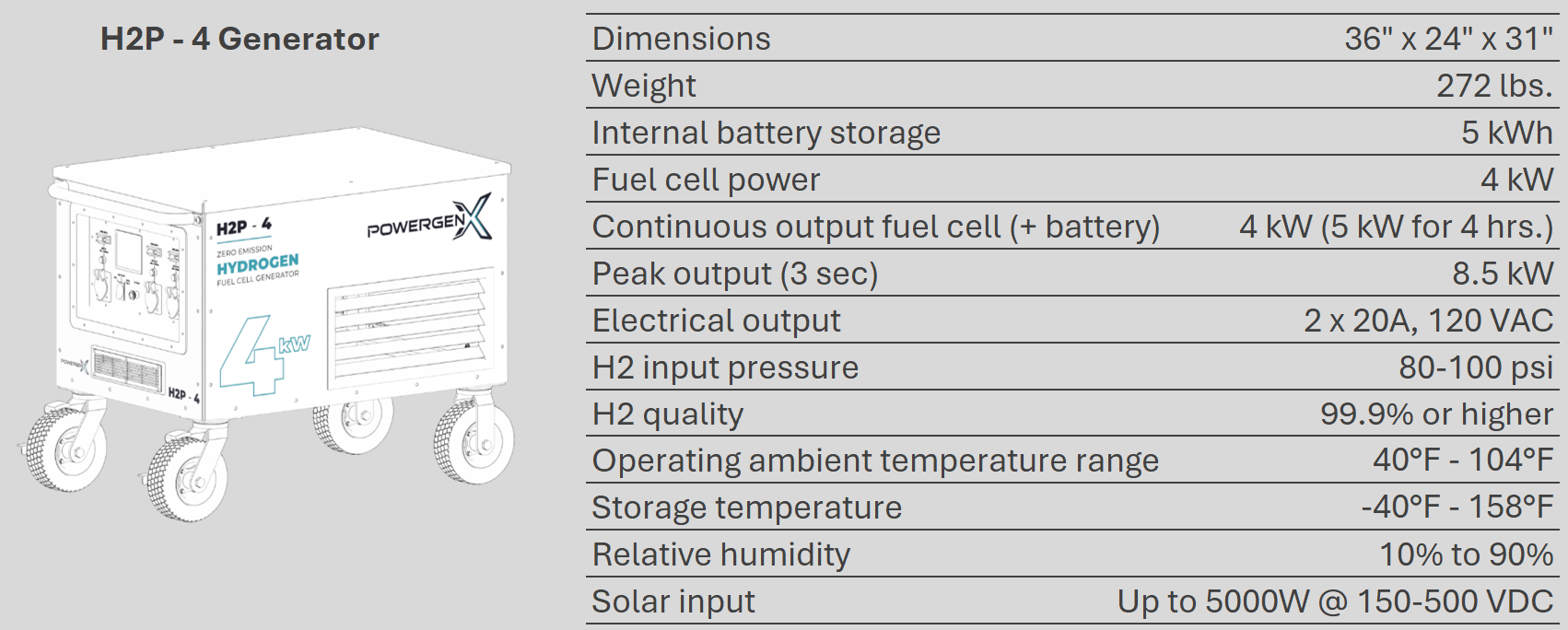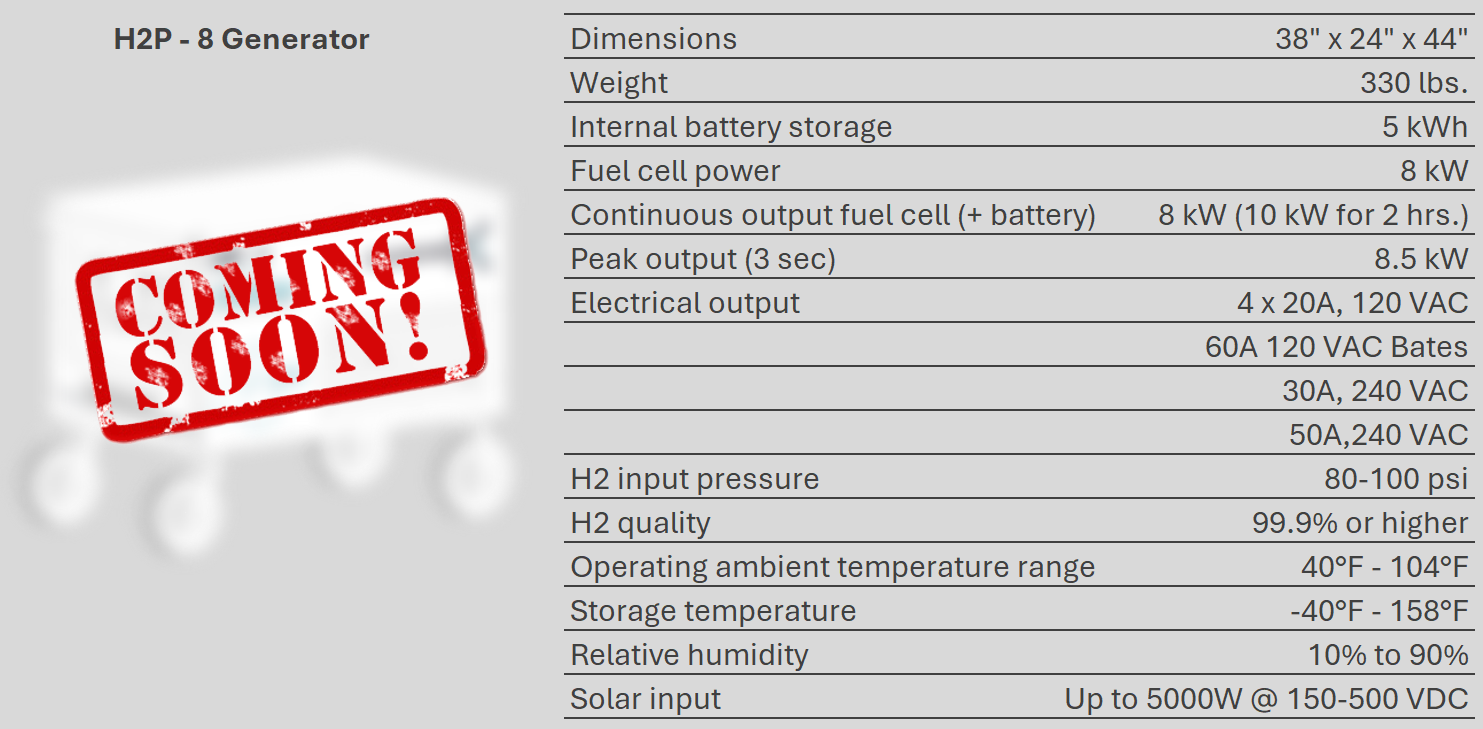SMARTER
POWER
More Energy for the money
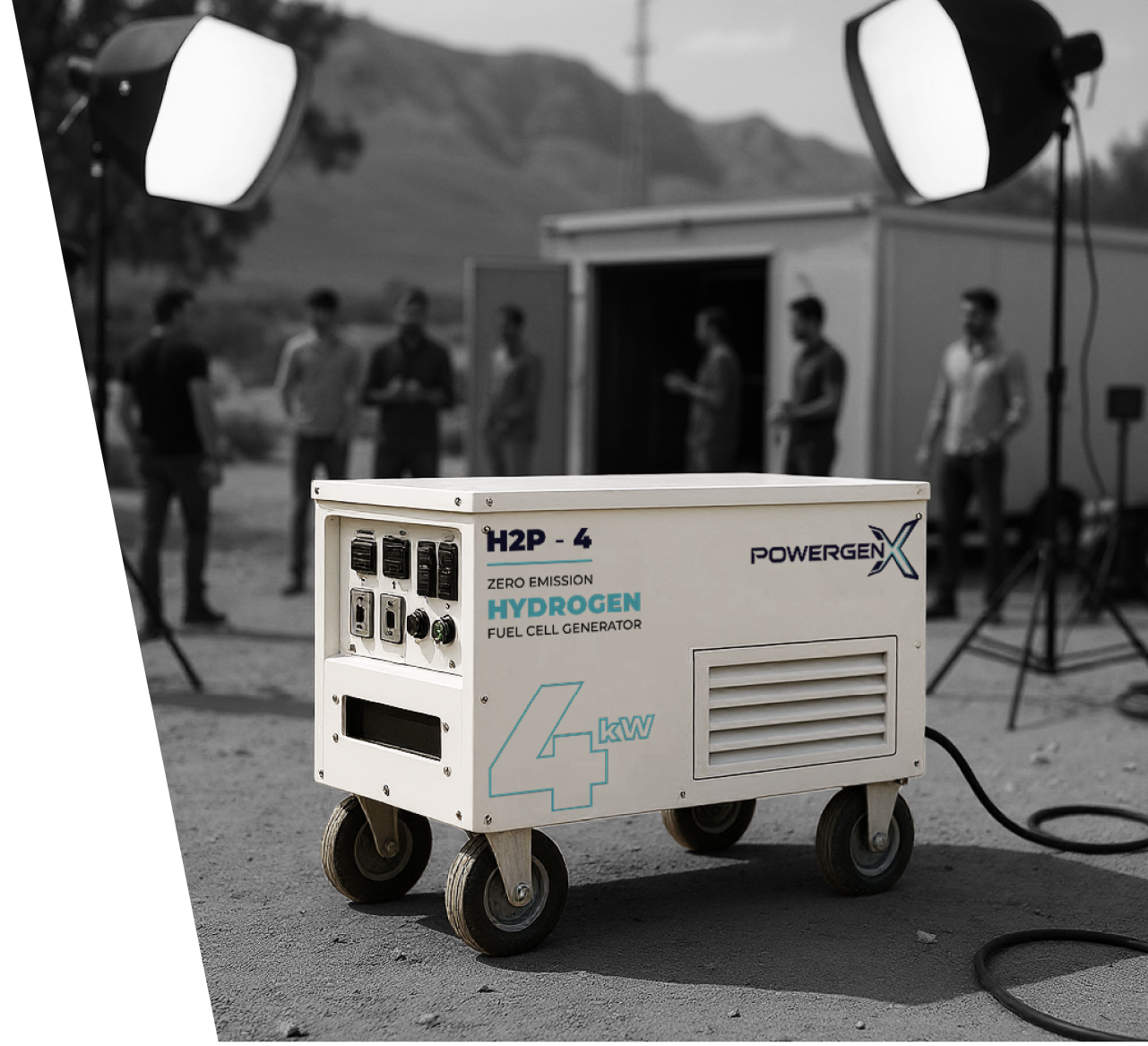
Quiet Operation
Zero Emissions
Cost Effective

The Hydrogen Advantage
Power your remote operations with a solution that’s cleaner, and more economical than traditional zero-emission alternatives. Our portable hydrogen fuel cell generators are designed for rapid setup, delivering reliable energy exactly when and where you need it.
Experience the benefits of low-noise performance, creating a safer, more comfortable work environment and enabling uninterrupted 24/7 operation even in noise-restricted areas. With continuous, dependable power, our systems can support a wide range of essential equipment.
Hydrogen supply is simple and accessible. Industrial hydrogen cylinders are available at thousands of locations worldwide, and in most cases, can be delivered directly to your site and retrieved when empty.
Generator Comparison
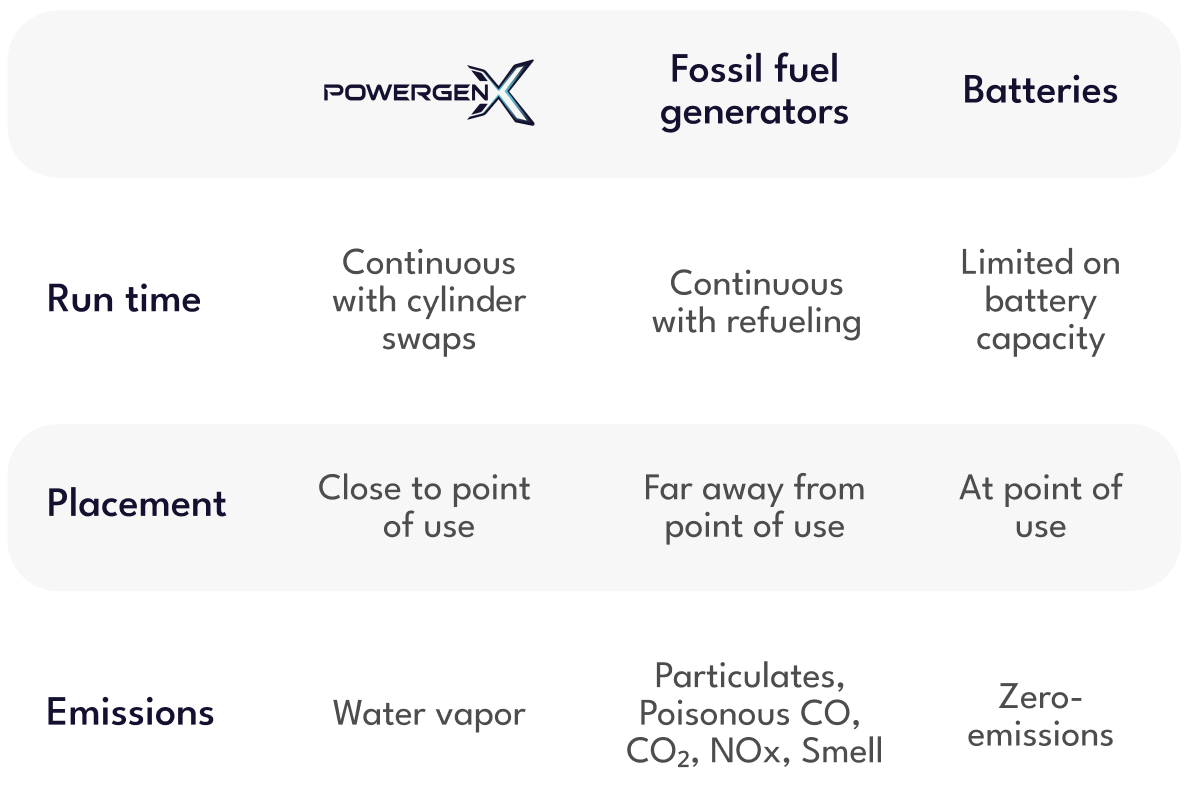
Energy vs Cost
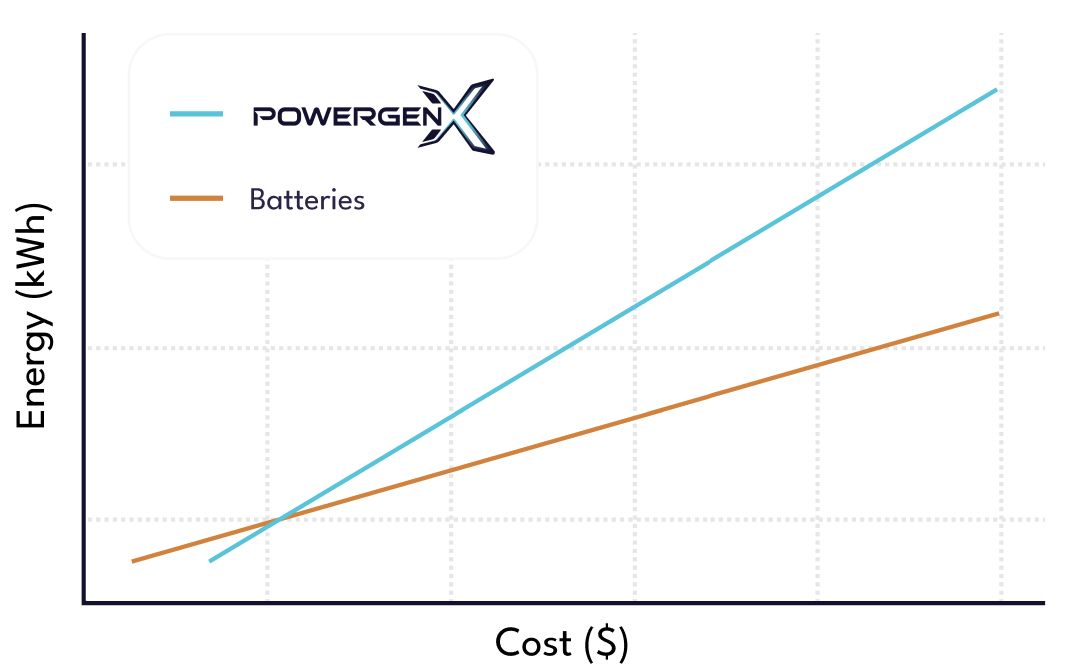

Our Company
POWERGENX was founded by a leading fuel cell expert with over 25 years of experience in the industry. POWERGENX is pioneering the path to a sustainable future in the global portable power industry. We are committed to transforming the energy landscape, empowering the use of cleaner and more efficient power solutions.
What is a hydrogen fuel cell and how does it work?
A hydrogen fuel cell is an energy conversion device that combines hydrogen and oxygen to produce electricity, heat, and water. Hydrogen gas is supplied to the anode, where it splits into protons and electrons (with the help of a catalyst, usually platinum). The protons pass through a proton exchange membrane (PEM), while the electrons travel through an external circuit, generating electric current. At the cathode, protons, electrons, and oxygen combine to form water. This process is clean, efficient, and emits only water and heat as byproducts.
How is a hydrogen fuel cell different from a battery?
Unlike a battery, which stores electrical energy chemically and must be recharged, a hydrogen fuel cell generates electricity continuously as long as it is supplied with hydrogen and oxygen. The fuel cell does not store energy; instead, it converts chemical energy directly into electrical energy without combustion, producing only water and heat as emissions.
What are the main benefits of using hydrogen fuel cells?
Hydrogen fuel cells offer several key benefits:
-
Clean energy: They produce zero emissions (only water and heat) when using pure hydrogen.
-
High efficiency: Fuel cells are typically 40–60% efficient, significantly higher than internal combustion engines.
-
Reliable and quiet: They have few moving parts, resulting in quiet, low-maintenance operation.
-
Versatile: Fuel cells can be used in a wide range of applications, from vehicles to backup power systems
How do hydrogen fuel cell generators compare to diesel or gas generators?
Hydrogen fuel cell generators are quieter, produce zero harmful emissions, and require less maintenance than traditional diesel or gas generators. While the upfront cost may be higher, fuel cells offer lower lifetime costs in many applications due to their efficiency and durability. They are especially suitable for environmentally sensitive settings.
Where can hydrogen fuel cells be used?
Hydrogen fuel cells are used in:
-
Transportation: Light-duty and heavy-duty vehicles, buses, trucks, trains, ships, and material-handling equipment.
-
Stationary power: Backup and primary power for buildings, hospitals, and data centers.
-
Portable power: Remote or off-grid applications where reliable, clean energy is needed
How is hydrogen produced and stored for use in fuel cells?
Hydrogen can be produced through several methods, including:
-
Electrolysis: Using electricity to split water into hydrogen and oxygen (green hydrogen if renewable energy is used).
-
Steam methane reforming (SMR): The most common industrial method, which extracts hydrogen from natural gas.
Hydrogen is typically stored as a compressed gas or in liquid form for transportation and use. Storage safety, efficiency, and cost are ongoing areas of innovation
Are hydrogen fuel cell generators safe to use?
Yes, hydrogen fuel cell generators are designed with multiple safety features, including leak detection, pressure relief systems, and robust storage solutions. Hydrogen is lighter than air and disperses quickly if released, reducing the risk of accumulation. While hydrogen is flammable, modern systems are engineered to minimize hazards and meet strict industry safety standards.
Can hydrogen fuel cells be used alongside renewable energy sources?
Yes, hydrogen fuel cells are highly compatible with renewable energy. Excess electricity from wind or solar can be used to produce hydrogen via electrolysis, which can then be stored and used in fuel cells to generate electricity when needed, supporting grid stability and energy independence.




